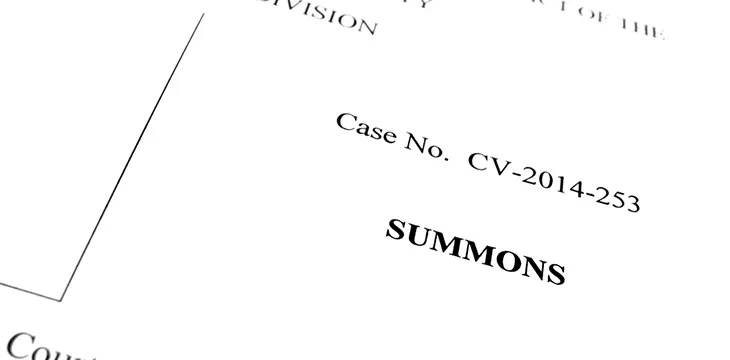|
Getting your Trinity Audio player ready...
|
Tron founder Justin Sun’s trip to Hong Kong was spoiled by a regulatory summons, while local officials pushed back on the suggestion that decentralized finance (DeFi) bros will be allowed to run wild in China’s special administrative region.
This week, Sun appeared at the HashKey Group’s Web3 Festival in Hong Kong, celebrating what he claimed was a turning point in China’s traditionally harsh view of all things ‘crypto’: “I can’t believe that we are having such conferences on Chinese soil. Hopefully one day, we will have such events in Shanghai and Beijing.”
That same day, a Twitter troll tweeted that the China-born Sun was being held at a HK police station after being arrested on unspecified charges. The tweet turned out to be false, but it seems Sun’s HK trip was spoiled somewhat by a summons issued Wednesday, April 12, by the U.S. Securities and Exchange Commission (SEC).
The summons followed last month’s civil charges accusing Sun of offering and selling unregistered securities while fraudulently manipulating the price of said securities through “extensive wash trading.” The SEC also charged eight celebrities Sun allegedly paid to promote the Tronix (TRX) and BitTorrent (BTT) tokens via their social media feeds.
The SEC’s summons gives Sun just 21 days in which to respond to the civil charges. Failure to respond will result in a default judgment against Sun. While Sun responded to the SEC’s original filing saying he was “eager to collaborate with governments and regulatory bodies,” he has so far said nothing about the summons issued in the U.S. District Court for the Southern District of New York.
The China-born Sun has led a nomadic existence since his crypto adventure began, based on his apparent belief that it’s harder for law enforcement to hit a moving target. (A sentiment shared by Sun’s buddy Changpeng ‘CZ’ Zhao, founder of the controversial Binance exchange, who is facing his own legal difficulties in America.)
He’s a real nowhere man
Speaking of CZ, he made a virtual appearance at the Web3 Festival, citing “scheduling conflicts” for not showing up in person. Then again, he might have been uneasy with the notion of setting foot on Chinese soil after multiple media reports in recent weeks that Binance continued to serve mainland customers long after the exchange claimed to have exited the Chinese market.
CZ’s ‘fireside chat’ (his portion starts around 1:26:00 of this video) focused on the differences between centralized finance (CeFi)—which includes exchanges like Binance—and so-called decentralized finance (DeFi). CZ pushed back against DeFi’s decentralized claims, noting that even two individuals forming a project team effectively represent centralization.
The chat quickly turned to regulatory issues, with CZ declaring that “having no regulatory clarity is the worst. Having bad, restrictive regulations [is] better than that. Not great, but at least you know what to do.” CZ then cited China’s 2017 ban on digital asset exchanges giving operators a chance to “get out,” a rather transparent attempt to offset those media reports of Binance’s ongoing Chinese operations.
CZ suggested that regulators allow “nascent” industries “grow a bit” before imposing rules. Citing the current presence of “nefarious players,” CZ claimed, “We need to find ways to limit those guys.” Weirdly, the irony-impaired CZ appeared to be advocating for further crackdowns on his own operation, which is under regulatory fire in a growing number of jurisdictions.
CZ claimed that it’s “very important for regulators to have a deep understanding of the industry…Today, most regulators don’t have industry experience…We need to very actively engage with regulators. We can’t just say ‘hey look, this is decentralized, we’re nowhere.”
While CZ appeared to be trying to let some air out of the DeFi balloon, his ‘we’re nowhere’ jibe accurately describes his infamous strategy of denying the existence of a Binance headquarters. In years past, CZ told colleagues that “the main reason [Binance.com] does not land anywhere” is to “keep countries clean” of violations of local laws.
We welcome regulation! No, not that regulation!
Many of the reports emanating from the Web3 Festival focused on the enthusiastic blessing that Hong Kong authorities appeared to be bestowing upon festival attendees. Hong Kong CEO John Lee Ka-Chiu demonstrated his support by attending a Hong Kong Stock Exchange ceremony thrown by the HK Web 3.0 Association to inaugurate the event.
However, while exchange owners such as CZ publicly profess an eagerness to work with regulators, Binance has yet to answer Hong Kong’s call to secure a local operating license under the new regime that takes effect on June 1. Binance’s traditional M.O. is to back into markets by acquiring an existing licensed company, thereby avoiding unnecessary scrutiny.
In fact, only two exchanges—Web3 Festival promoter HashKey Pro and OSL Digital Securities Ltd— opted to secure licensing under Hong Kong’s old voluntary scheme. Justin Sun’s Huobi exchange reportedly plans to apply for a license, assuming Sun’s not in jail by June.
The initial excitement over Hong Kong’s seeming about-face on all things crypto faded somewhat when Financial Secretary Paul Chan Mo-po warned the Web3 festival audience that “the stability of the financial system and investor protection should not be damaged.” Chan added that “recent events” had demonstrated that “appropriate regulations are a must to create a sustainable development environment and a more ideal space for development.”
Some attendees were reportedly taken aback by Chan’s insistence that DeFi apps would also be subject to local scrutiny. The South China Morning Post quoted Securities and Futures Commission exec Keith Choy saying that “as long as DeFi activity holds within the scope of securities and futures, it would be subject to the same regulatory requirements applicable to traditional financial activity.” The individuals behind DeFi operations would also be subject to licensing requirements.
Hong Kong’s DeFi concerns came hot on the heels of two government reports, one by the Banque de France and the other by the U.S. Treasury Department, regarding the challenges DeFi poses to financial systems. The U.S. report, in particular, found that DeFi was popular with “illicit actors, including ransomware cybercriminals, thieves, scammers,” and North Korean hackers to transfer and launder illicit proceeds.
There’s also uncertainty regarding the permanence of Hong Kong’s new crypto-tolerant attitude, particularly given Beijing’s historically antagonistic approach. Many aspects of the ‘one country, two systems’ policy that Hong Kong enjoyed for many years have vanished recently as Beijing found fault with people taking the concept of ‘freedom’ too far. Who knows? Perhaps HK’s crypto welcome mat is an elaborate sting operation.
TUSD ‘B-token’ goes brrrrrrrrrrr
While CZ didn’t make it to Hong Kong, his company was highly visible, and Justin Sun was only too eager to promote the ample Binance signage adorning a boat the company hired to ferry dignitaries and acolytes on a tour around Victoria Harbour.
Sun was recently forced to deny reports that he’d unsuccessfully pleaded with CZ to buy out his Huobi stake. The episode doesn’t appear to have resulted in animosity between the two, as Sun’s TrueUSD (TUSD) stablecoin was recently selected as the replacement for Binance’s own BUSD (following the U.S. government’s ultimatum to BUSD minter Paxos Trust).
Last month, Binance eliminated its zero-fee trading policy for BTC pairs, with the exception of BTC-TUSD—supplanting the perk previously enjoyed by BTC-BUSD. This week, Binance began issuing TUSD as a native token on its own in-house BNB Chain, “paving the way for TUSD’s further integration into the BSC (BNB Smart Chain) ecosystem.”
It’s worth recalling that the U.S. government’s BUSD crackdown occurred because Binance was issuing its own BUSD (Binance-Peg BUSD) on the BNB Chain. Unlike the Paxos version, which was backed 1:1 with the U.S. dollar, the Binance-Peg version was backed by little more than CZ’s word. In January, Binance was forced to admit that on at least three separate occasions, it had printed over a billion more of these B-tokens than the dollar reserves backing them. Seems the only thing this stablecoin was ‘pegged’ to was CZ’s immediate financial needs.
It’s anyone’s guess how long it will take Binance to fire up its ‘B-token’ money printer, but with TUSD’s market cap having more than doubled in the past 30 days, we’d advise bettors to take the ‘under’ on any dated wager.
Binance.US delists TRX
CZ can’t completely ignore Sun’s legal problems, at least not in the country that filed those charges. This week, the U.S.-registered Binance.US exchange announced it was delisting Sun’s TRX and Spell tokens on April 18. Withdrawals will still be permitted after that date, but buy, sell, convert, and OTC features will halt on the evening of April 17.
The formal announcement made it sound like this decision had been taken following a periodic review to ensure a token “continues to meet the standard of excellence we expect.” No mention was made of Sun’s charges or the alleged wash trading that artificially goosed the value of his tokens.
The charges filed last month against Binance and CZ offered still more evidence of the lie that Binance.US is an ‘independent entity’ from the Binance.com mothership. More importantly—and unlike CZ—Binance.US staff are physically located within U.S. borders, leaving them with far less latitude in brushing off niggling regulatory concerns.
Prime mistrust
While TRX withdrawals might still be available on Binance.US for a short time, customers looking to withdraw U.S. dollars have been out of luck ever since last month’s collapse of America’s crypto-friendly banks Silvergate and Signature.
A week ago, the Wall Street Journal reported that neither Cross River Bank nor Customers Bank (CUBI), which has given refuge to some U.S. crypto orphans, appeared willing to associate themselves with the Binance brand. Binance.US was being forced to hold customer funds with a crypto-friendly intermediary, the Nevada-based Prime Trust.
Prime Trust fired its CEO, Tom Pageler, last November for unexplained reasons, although it occurred shortly after the collapse of the FTX exchange. Prime Trust acted as the conduit for millions of dollars in political donations made by FTX founder Sam Bankman-Fried and colleague Nishad Singh while SBF was lobbying Congress for crypto-friendly regulations.
Well, that’s about it for Binance-related scandals this week, although it’s still Friday, which we at CoinGeek refer to as ‘Thank God its 4-day’—a reference to CZ’s routine use of ‘4’ to dismiss damning factual reports as nothingburgers— because some bad Binance news always seems to drop on Fridays. We’ll keep you posted.
Follow CoinGeek’s Crypto Crime Cartel series, which delves into the stream of groups—from BitMEX to Binance, Bitcoin.com, Blockstream, ShapeShift, Coinbase,
Ripple, Ethereum, FTX and Tether—who have co-opted the digital asset revolution and turned the industry into a minefield for naïve (and even experienced) players in the market.

 04-25-2025
04-25-2025 





